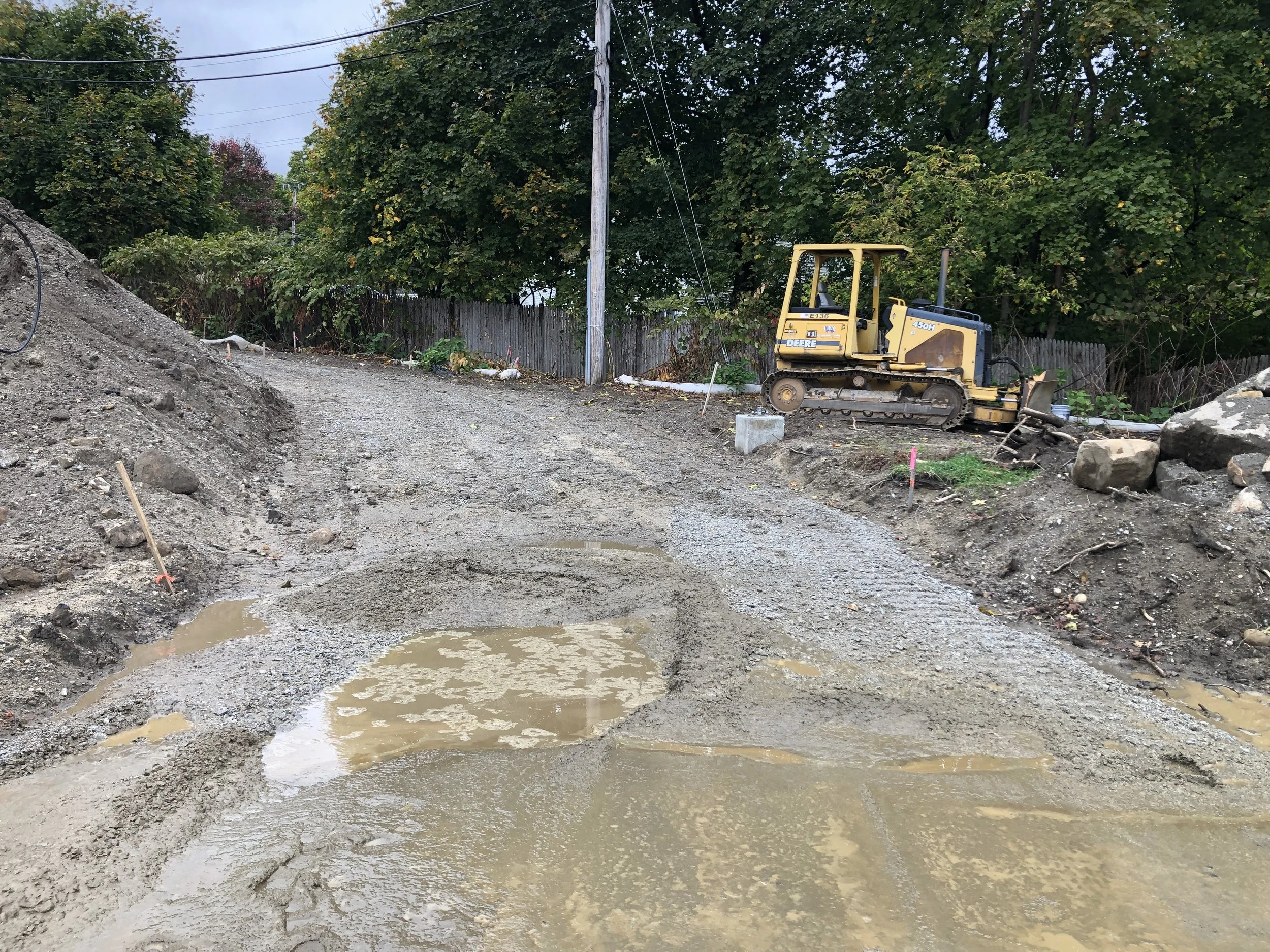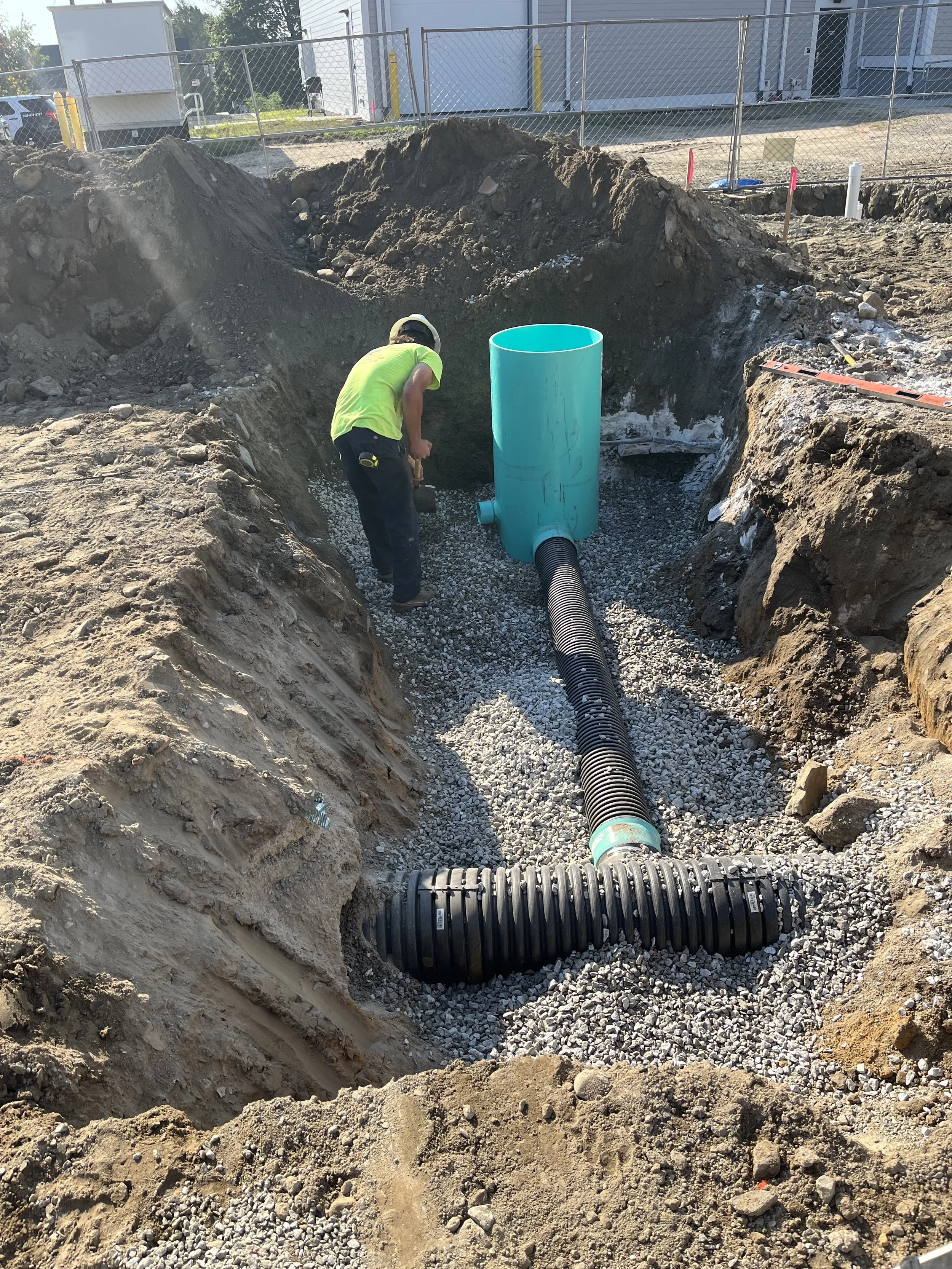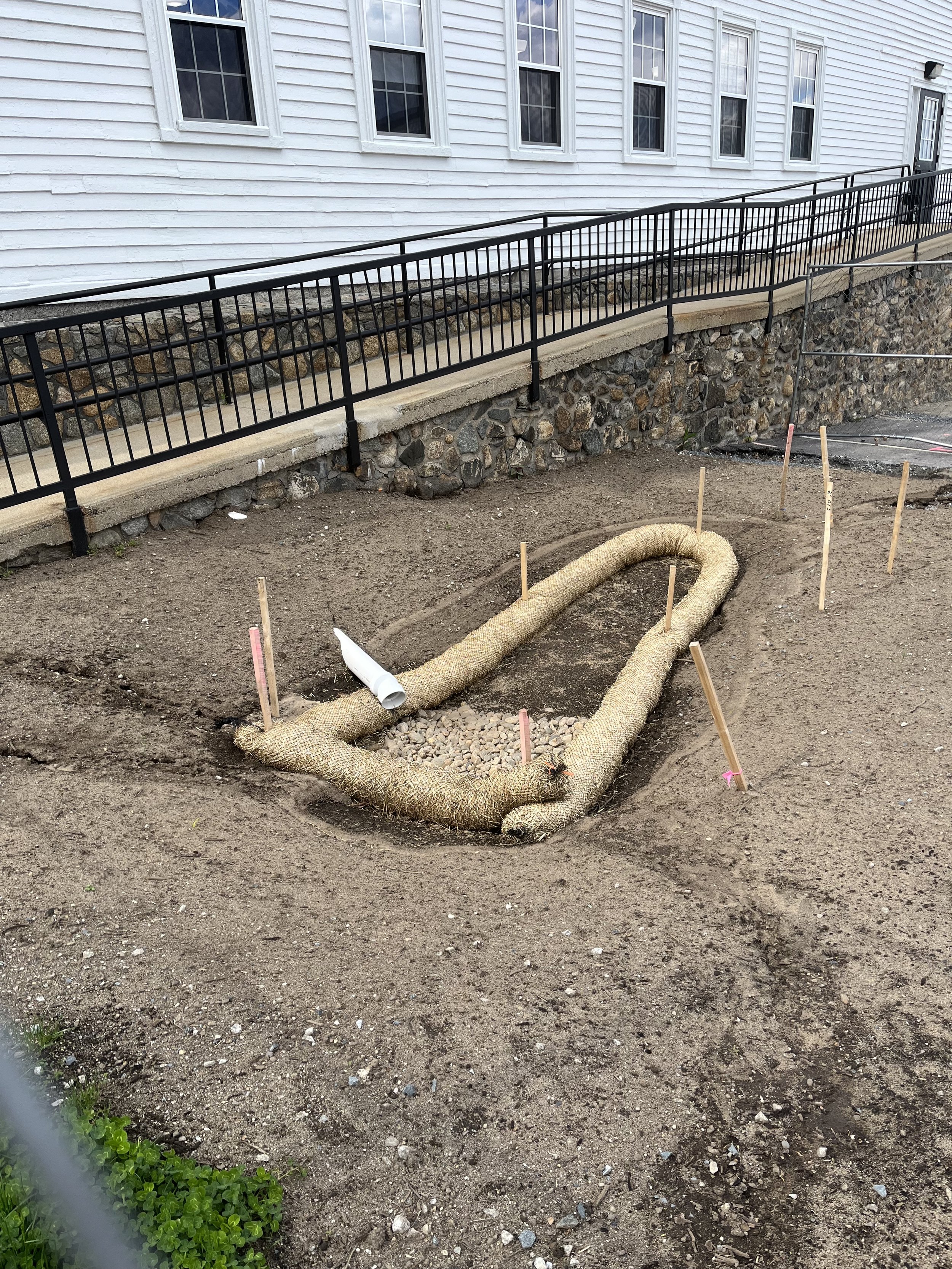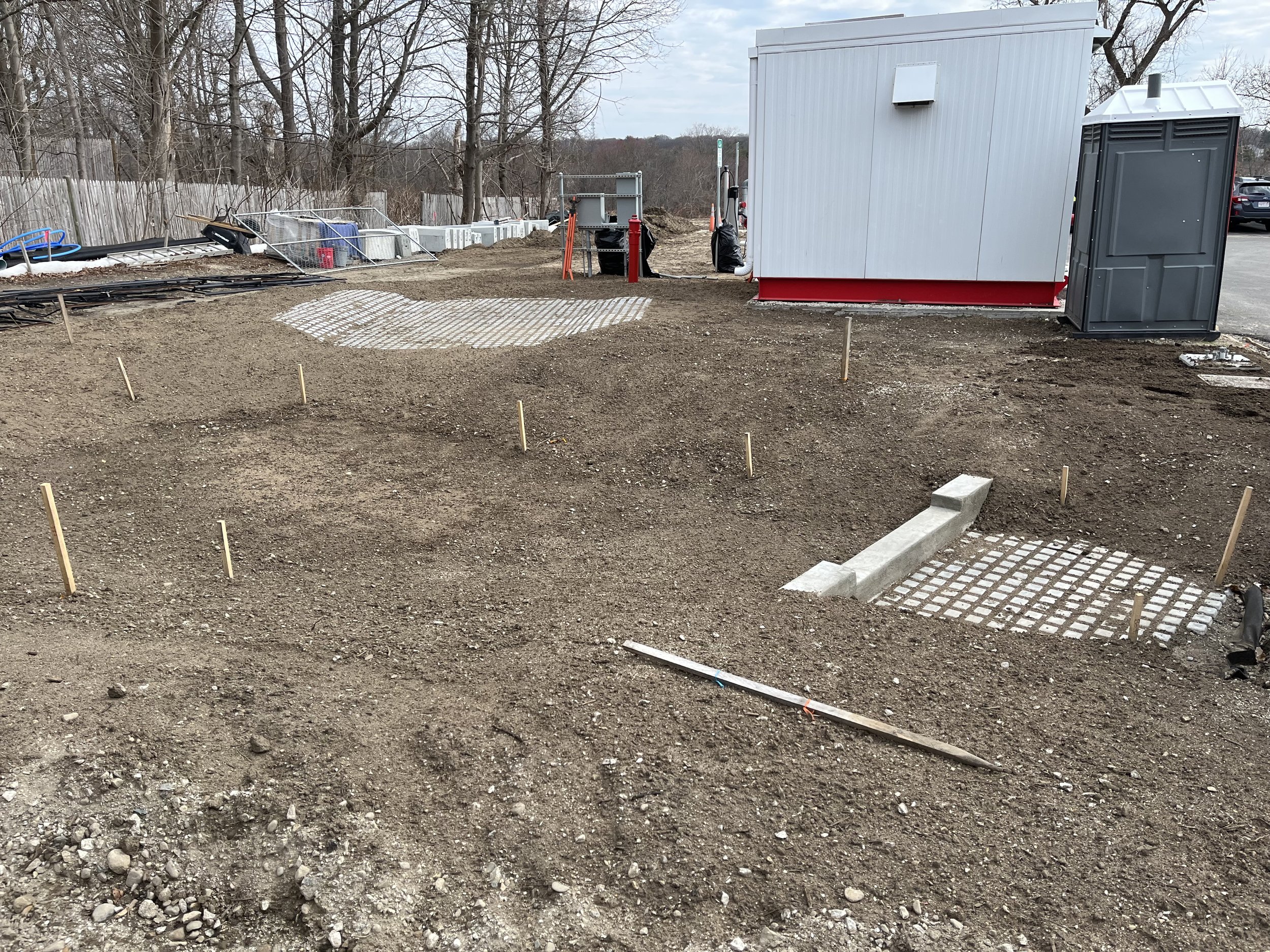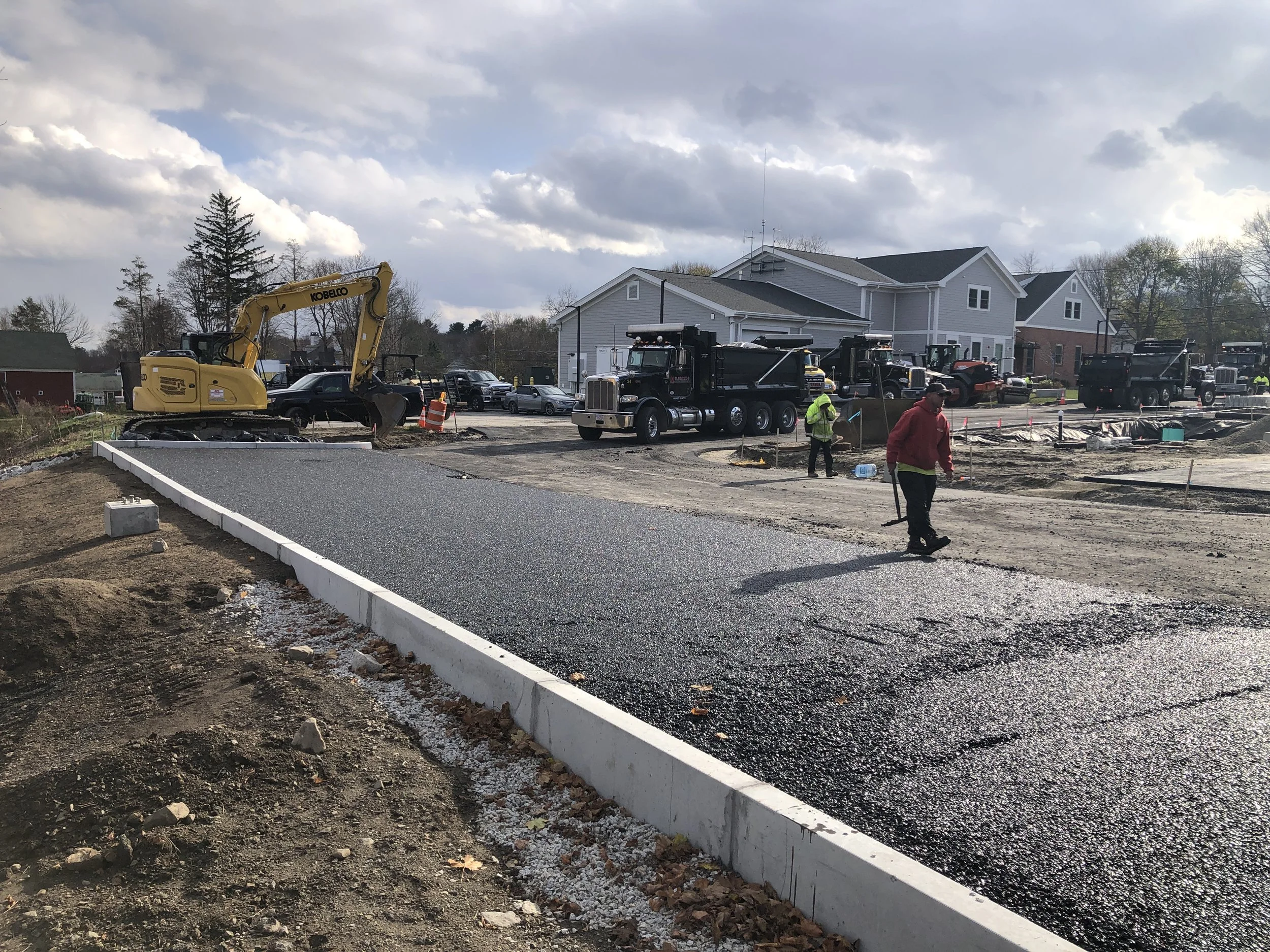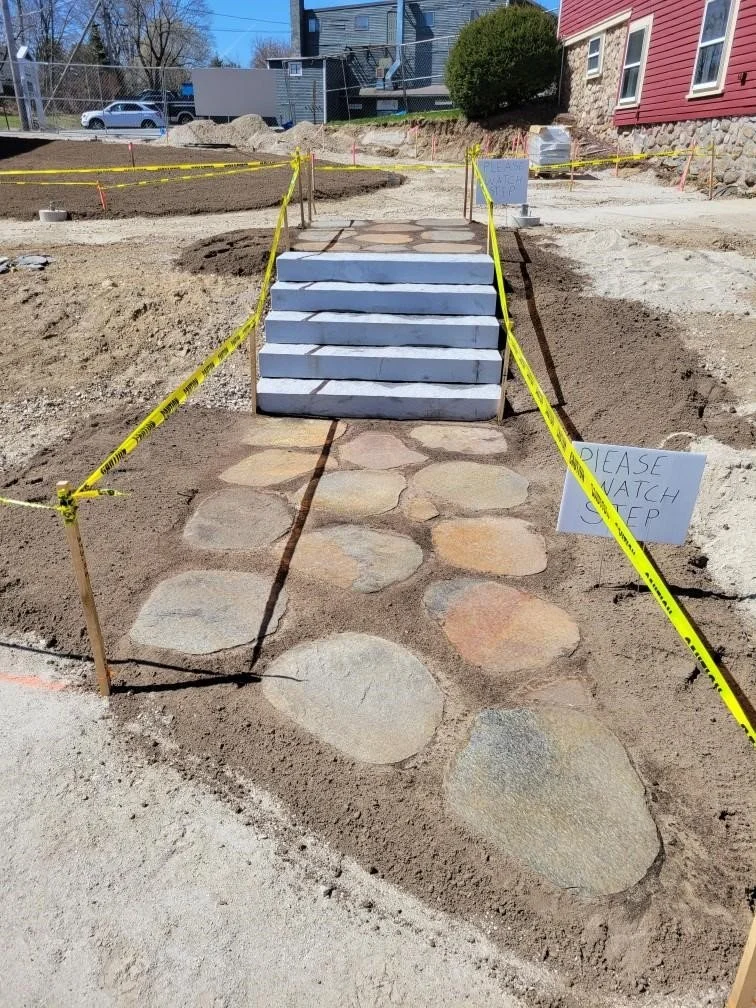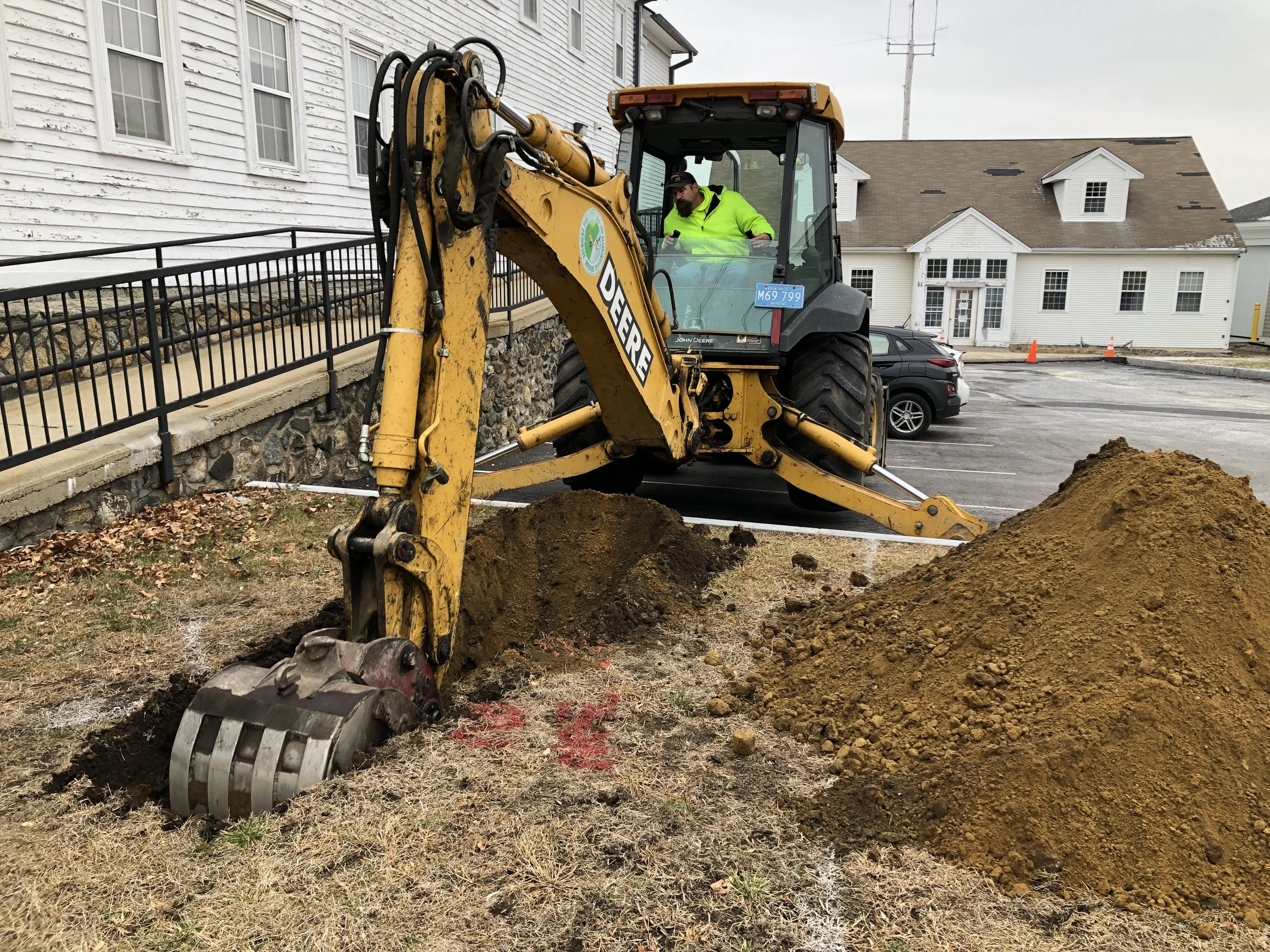
UNDER CONSTRUCTION
Construction Schedule
Construction at the Town Hall Campus started in August 2022 and is anticipated to be completed by June 30, 2023. Please excuse our appearance during construction.

Construction Process of a Stormwater Bioretention Practice
-
Excavate Area
The first step is to excavate the bioretention area and lay any pipes or infrastructure. In this photo, the Contractor is placing the bioretention outlet structure, where overflow will flow into and through the underground drainage pipes.
-
Add Stone
The excavated area is then filled in with stone. Stormwater filters through the stone to the underground drainage pipes.
-
Add Engineered Soil and Plant
Finally, the bioretention is filled with engineered soil, graded, and planted with vegetation that will help soak up stormwater and remove nutrients.
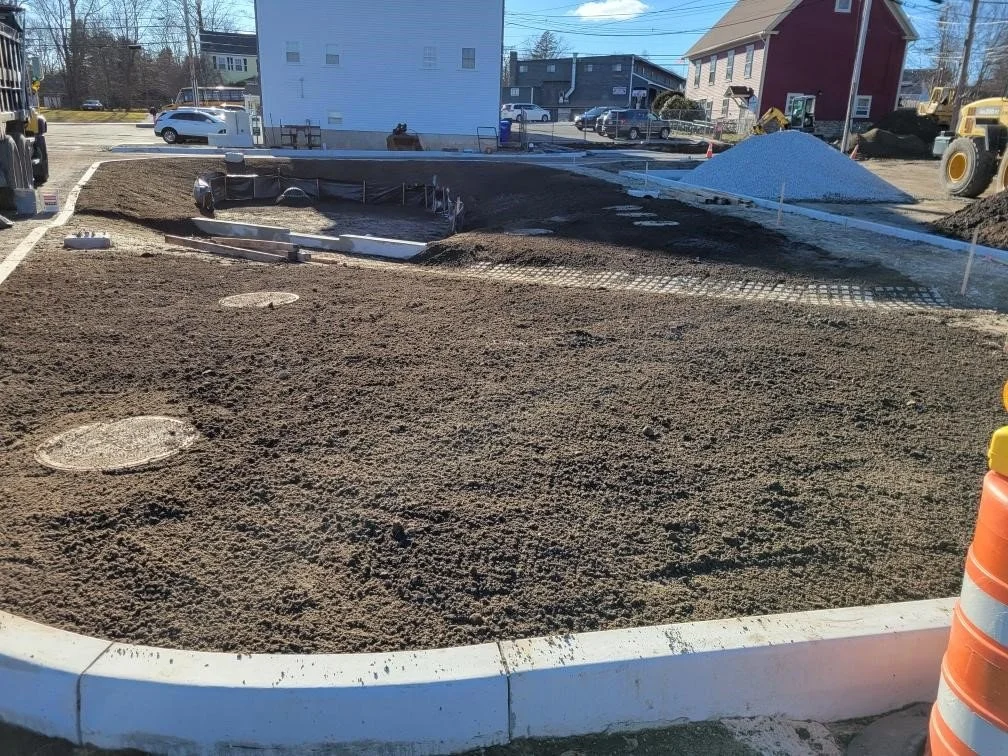
Around the Parklet
The parklet was designed for the community to gather, meet, relax, and be closer to nature in a new green space connecting the Town Hall and Annex buildings.

Porous Pavement Applications
-
Laying the Underdrain
The underdrain helps collect stormwater filtering through the porous pavement and conveying it elsewhere on site.
-
Adding Stone and Pavement
A stone reservoir helps to filter stormwater as it percolates through the stone to the underlying soils or underdrain. Porous asphalt will be poured over the stone to provide the surface for vehicles to drive and park on.

